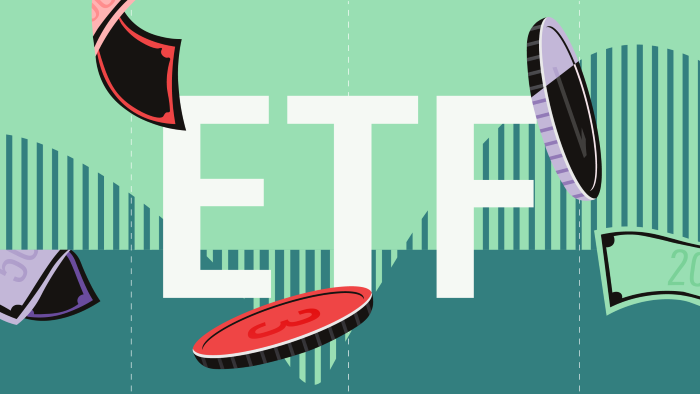
Beating the market no longer seems to be the focus for many investors. Instead, simply piling cash into a fund that follows an index and delivers exactly what you expect, for a small fee, has become the norm.
Last year, indexed funds recorded inflows of $747 billion globally, while their actively managed counterparts shed US$1.27 trillion. Passive funds managed to increase their share of the global market by 2.3% to 38%, according to Morningstar Direct data.
In Canada, the share of passive strategies is much smaller at 15.5%, however, the recent surge of assets into balanced and sustainable ETFs could change this quickly. Last year, passive strategies experienced positive inflows of $19 billion, while active strategies experienced $14 billion in outflows. In the U.S., passive funds are already nearing parity with active funds in terms of market share at 45% as of 2022.
This is by no means a short-term trend: the market share of index funds increased about 1% a year between 2008 and 2013, only to pick up speed and increase 2% a year from 2015 to 2020. This trend continued in 2021 and 2022.
A Matter of Survival
Morningstar research shows that in general, actively managed funds have failed to survive and beat their average passive peers, especially over longer time horizons. A recent study of active equity managers in Europe over 10 years until 2022 found the average rate of success was 23%, while the average rate of success for fixed income active fund managers was 19%.
Typically, success rates for active managers are higher in equity categories focusing on mid and small-cap stocks rather than large caps. Active funds also have higher odds of success in equity categories where the average passive peer is biased to a specific economic sector or top-heavy in terms of individual names.
Fees also play a key role; the cheapest funds in the U.S., for example, succeeded over twice as often as the priciest ones – a 36% success rate versus 16% – over the 10-year period ended December 2022.
“This not only reflects cost advantages but also differences in survival, as 67% of the cheapest funds survived, while 59% of the most expensive did so. Cheap funds tend to hold the greatest advantage over expensive funds in market segments with relatively high fees,” Morningstar’s latest Active/Passive Barometer states.
Where Active Equity Excels
Actively managed funds can make up for their higher fees with higher returns. And some do, some of the time. Our research suggests it might be a safer bet to choose an index fund for the long run since trying to beat the market tends to result in lower returns than just buying it. But it’s not true to say that you can’t be a winner with an actively managed fund.
“In every asset class there's always room to generate alpha, even if over the long-term the compounding effects of low fees are a factor strongly in favour of passive management. The problem is to identify the active managers who can effectively do so,” Jose Garcia-Zarate, associate director, passive strategies research at Morningstar, explains.
The purpose of this research is not to show that passive alternatives are a superior form of investing, but rather that generating alpha over standard market returns is a difficult endeavour, Garcia-Zarate adds.
“Now, you could argue that in effect what one can interpret is that it's best to go passive in any circumstance, but that's not the idea.”
Bigger But Not Necessarily Better
The problem with a market that consists only of passively managed funds is that no one acts on opportunities that arise in the market due to unforeseen events. Since the idea of an index tracking fund is to simply choose an index and mirror it, the fund will make changes in its portfolio only if the index itself changes.
“One way to think about this is to imagine that investment decisions are increasingly on autopilot: more and more money will pour into a set of firms largely independent of the considerations that have traditionally guided investors, such as supply, demand, management performance, growth potential, or broader economic factors,” James Ledbetter, editor of Inc. magazine and Inc.com, wrote in an article in The New Yorker in 2016.
A market with more passive investors than active ones will continue to push money into the largest firms, whether these companies are performing strongly or not, Ledbetter argues.
If every investor chose an indexed vehicle, it would simply result in a market where the most valuable company stays as number one and just gets bigger and bigger. No other parameter gets a look in.
“Such effects already exist today, of course, but the market is able to rely on active investors to counteract them. The fewer active investors there are, however, the harder counteraction will be,” Ledbetter explains.
Wisdom of Crowds?
Garcia-Zarate not only says that a world with only index funds would be “terribly boring”, but also that it would go against our natural drive to enhance performance.
“I'd go as far as saying that a fund world without active managers would go against human nature. The wisdom of the crowds (aka passive) is a powerful force, but that shouldn't be an excuse to negate the individual desire to do better and to improve,” he says.
“Even if most individuals trying to achieve that end up failing, there are several who don't and that should be celebrated and properly rewarded. The challenge for those successful individuals is not to fall into the trap of thinking that they're immune to failure. Maintaining success over the long-term is hard work and is not a linear process, meaning that there can be short-term periods of underperformance.”




















